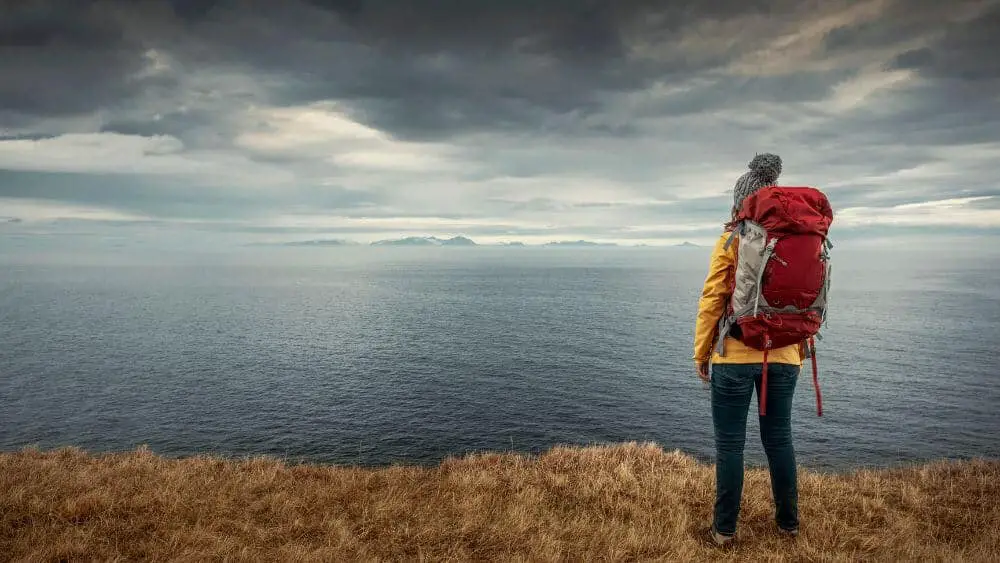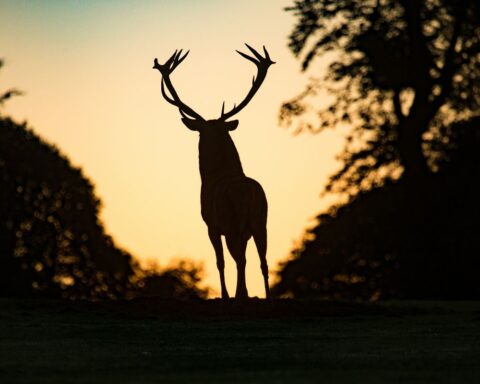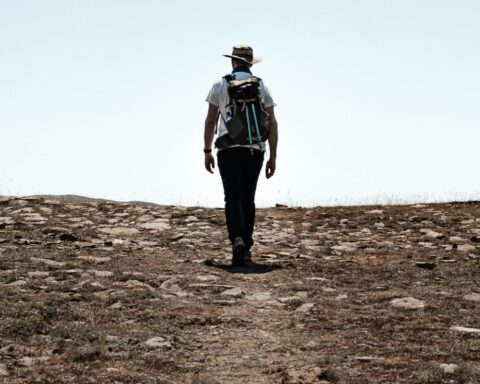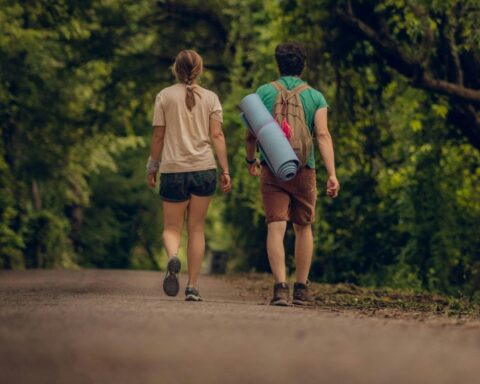Whether you choose to go camping, backpacking, or combine the two, you will have a fantastic time in the woods, the mountains, or even the beaches you explore.
Both activities involve taking in breathtaking beauty and discovering the rich biodiversity.
Even so, there is a distinction between camping and backpacking. What is that? Read this article to find out!
What Is The Distinction Between Camping And Backpacking?
The biggest distinction is that when camping, you can bring whatever you need, whereas when backpacking, you can only bring the essentials with you.
In other words, backpacking is a type of camping that entails heading on a hiking trip to different locations to stay overnight while having to carry nothing but your backpack.
On the other hand, when you go camping, you can drive your car to a location and set up your tent there or walk a bit further in the woods or to the beach to camp there.
Either way, you can carry many more things and you are not limited to the capacity of your backpack.
Camping’s Benefits And Drawbacks
Camping involves staying the night out in the wilderness, typically in a tent that you have set up, a motorhome, or in a campsite that offers tents, bungalows, and other types of accommodation.
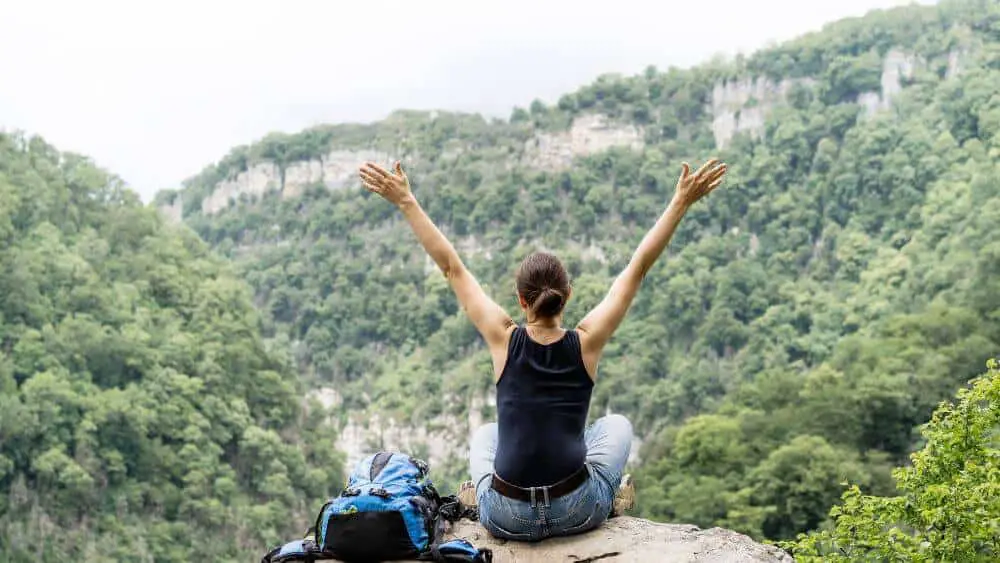
Most of those benefits listed below for camping also pertain to backpacking, so to better compare them and choose the best one, analyze this list to figure out which of the two suits you.
Benefits
Freedom
The main reason why so many people choose camping as their outdoor activity is to get away from the monotony of urban life.
Planning to spend a couple of nights in the wild can give you another sense of freedom, and independence and help you destress.
And given that you can carry more things with you, you can spend as much time as you want out there so long as you don’t run out of food and water!
Social Interactions
It might be that you want to sit by a fire ring, or you might be the adventurous type and want to go on endless hikes up the mountain.

Either way, having friends join you in this or your family is the best way to make unforgettable memories with them.
If no one is available, perhaps going to a busier campground can help you meet some people there and form strong bonds.
Who knows? They might become your new camping buddies!
Nature
Along with the feeling of liberation, there are numerous advantages to spending quality time outdoors.
Nature helps you improve physically, mentally, and spiritually and breathing that fresh air and oxygen is simply rejuvenating.
Offline Mode
One of the best aspects of camping is going offline.
Having no internet connection, sometimes even phone service allows you to connect with nature even more and let that hustle and bustle of urban life behind for a bit.
Contemplating Life
Camping can help you form a new point of view about your life.
You can spend a night under the stars, contemplate your life, and realize what matters the most.
Drawbacks
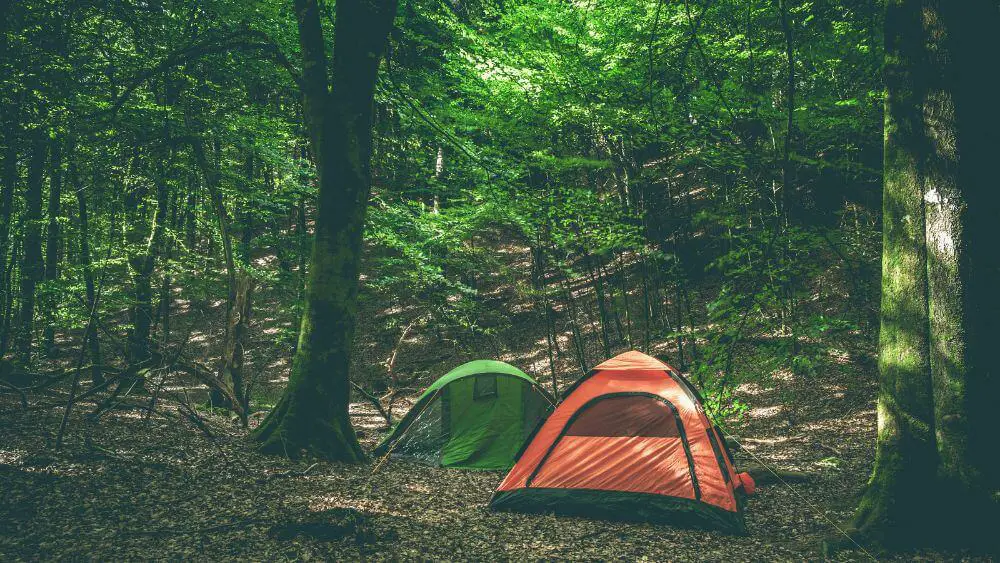
Comfort
Yes, sleeping in a tent is not the same as sleeping on that comfortable mattress you have at home.
So, if you are experiencing any back pain or don’t have the right camping mattresses and gear, it might not be that great of an experience for you.
Weather can also be an issue, as thunderstorms and rain can make it difficult, even impossible for you to stay the night out in nature.
Purchasing Equipment
High-quality camping equipment can be quite costly.
Starting from scratch and purchasing quality four-season camping equipment can cost more than a month’s rent and bills in some stores.
Luckily, there is a bunch of low equipment available that still performs admirably from stores like Walmart.
Not the best, but it will do the work!
Cooking
The meals you have while camping have a great taste, and it tastes even better when you are backpacking.
This is a positive thing since the extent of gastronomic effort grows exorbitantly even as the sophistication of the meals decreases.
Wildlife
Animals aren’t a problem in the majority of camping locations.
Nevertheless, now and then, a sociable bear will trawl through your snacks or raccoons will chew one of your backpacks.
Bugs are also a constant source of problems.
Cluttered Places
With less money to spend on hotels and trips abroad, people have turned to camp as a way to enjoy their vacation time.
This means that many camping areas are now overcrowded, so if you want some alone time you need to look for the less popular campgrounds.
Backpacking’s Benefits And Drawbacks
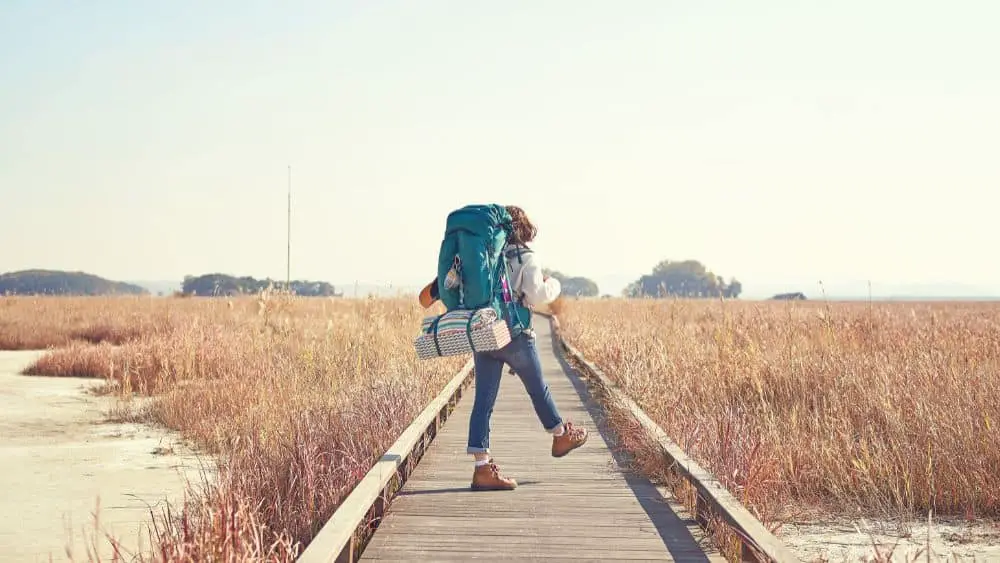
The camping benefits and drawbacks listed in the previous section apply to backpacking too, but this activity has its own set of benefits and drawbacks.
Benefits
Remoteness
The best thing about backpacking is the ability to leave the vehicle and the roadways behind and embark on a small hiking trip in the wild.
Camping is an excellent way to avoid hordes of tourists, and backpacking is an excellent way to avoid humans.
There will be other trekkers on the paths, but you can say hello and keep moving.
Fitness
Backpacking is a workout by itself, and it can help you improve your stamina, and physical condition, and even shed some pounds if that’s what you want!
Simplicity
Backpacking is simple, as all you can take is your sleeping bag, some food, and possibly a tent.
This means that you can focus more on the experience rather than on packing your things and worrying about forgetting something.
Drawbacks
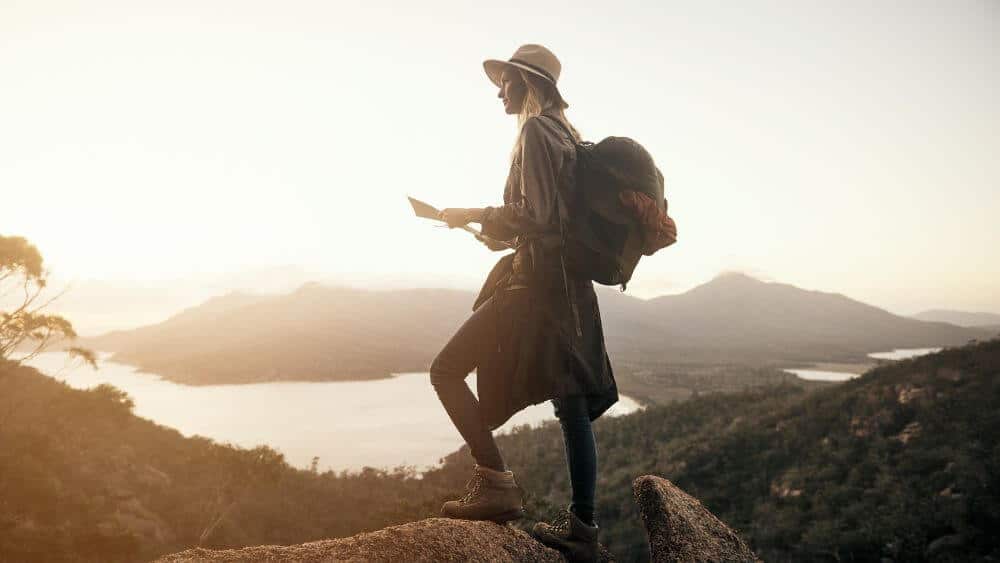
The disadvantages of backpacking are essentially the exact opposite of the benefits.
The remoteness comes with the risk of getting lost and being unable to contact someone.
The same goes for the lack of people you can meet on your trip.
The fitness part can be extremely difficult for people who are not in shape or have never worked out, even for older people.
Finally, the ease of backpacking requires you to forego some of your ‘essential items,’ so in case of heavy rain you might not have a second pair of shoes and find it impossible to move for a couple of days.
The Bottom Line
Both backpacking and camping are amazing outdoor activities, so no matter which one you choose you won’t be disappointed!
